‘If our book stops just one kid from taking their own life, then we’ve done our job’
By Will Stroude
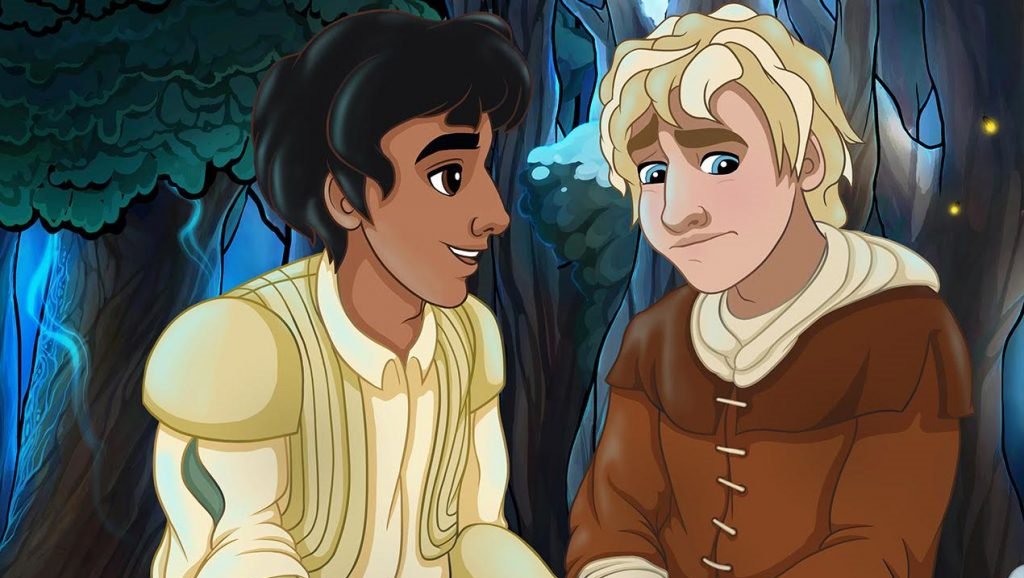
When New Zealand authors Chaz Harris and Adam Reynolds launched a Kickstarter appeal last year to help fund a new LGBT-inclusive children’s book, they had no idea just how much their idea would capture the public consciousness.
Following an overwhelming response from the LGBT community and beyond, the pair smashed their expected target, culminating in the release of Promised Land on Valentine’s Day last week.
Set in a Kingdom “where all are considered equal regardless of what they look like or who they love,” the brightly-illustrated tale is set help break the mould for children’s literature, and follows the story of a young Prince and a farm boy living in an enchanted forest, whose budding friendship blossoms into love.
As the book’s release continues to make waves around the world, Chaz and Adam tell Attitude why LGBT representation in children’s books isn’t just important; it’s potentially life-saving…
How long in total did it take from coming up with the idea to finally holding the first finished copy in your hands?
Chaz: Adam first mentioned the concept in July 2015 and we worked on developing the story from that time until we ran the Kickstarter in April 2016. We then completed work on the text with our editor in the first week of June. From there we worked with illustrators Christine Luiten and Bo Moore. That until December, at which point the book was sent off to the printers! We held an advance copy in our hands in the first week of January 2017.
How did it feel to finally flick through the pages of the book knowing that you had invested so much time and effort in it?
C: It was really surreal, I imagine it’s similar to what parents feel when they hold their children for the first time. It took a few weeks for it to sink in that it’s now a real thing! There’s also a feeling of pressure and responsibility, we just hope people like the finished product.
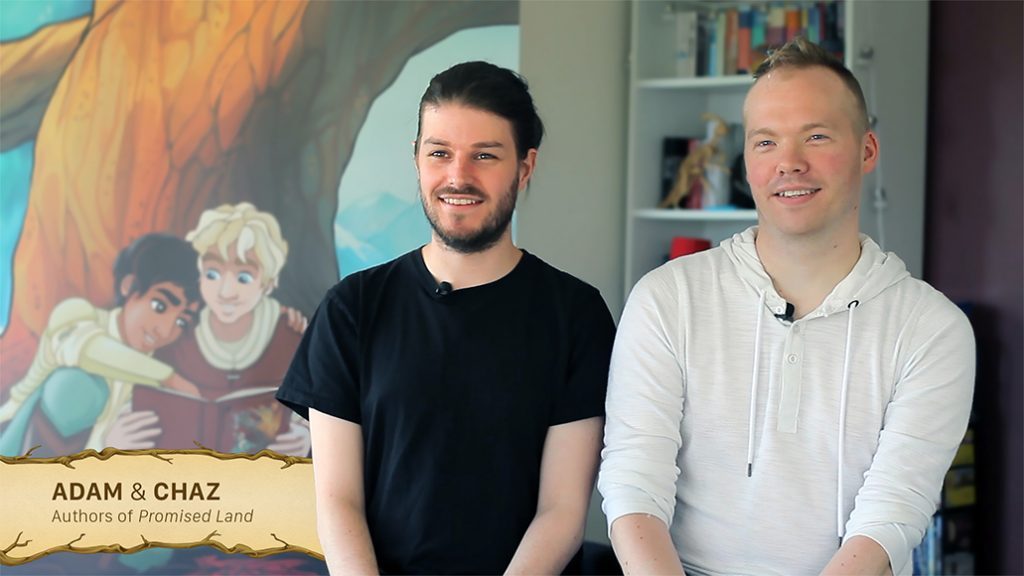
You have said that the sexuality of the characters is never in question. Why did you choose to write the story like this as opposed to making it a more ‘traditional’ coming out story?
Adam: We’ve already seen coming out stories, we’ve already seen LGBT characters portrayed tragically, or as the supporting comic relief. What we haven’t seen very often are heroic, brave lead characters who are gay or otherwise – it’s still a rare thing in the genre of children’s fiction.
It was vital to both of us that the sexuality of the characters wasn’t questioned or part of the conflict in the narrative. In the kingdom we’ve created, all are considered equal regardless of what they look like or who they love. In that environment, there is no need to come out, being discriminated against for those things isn’t really on the cards or that experience of ‘otherness’ that so much LGBTQ media tends to (often unintentionally) reinforce. We wanted to imagine a better world, one free of that kind of prejudice.
Is the title a veiled wish by you for a similar world of LGBT+ inclusion, especially considering the current landscape?
C: Absolutely! Our story involves a turf war, but we chose the title because of the somewhat utopian connotation. The dictionary definition of ‘Promised Land’ is a place or situation where someone might expect to find ultimate happiness – such as a place where what you look like and who you love is not an issue.
I know you are signatories of the ‘Everybody In’ charter, with the aim of making books more inclusive. How important is it for publishers, booksellers, libraries and authors to sign up for it, and why should people consider signing up if they haven’t already?
C: At the very first brainstorming session we had, we agreed our main characters were not going to be two white guys – not that it’s a bad thing, but that imagery already seems to well represented in the media and representation of LGBTQ relationships. One of my proudest moments during our media coverage last year was seeing guys from Mexico, Chile, Brazil and India tagging their boyfriends, saying things like “The prince looks like you!” or “It’s us!”. It was a reminder of how much representation matters beyond what we were doing with the gay characters.
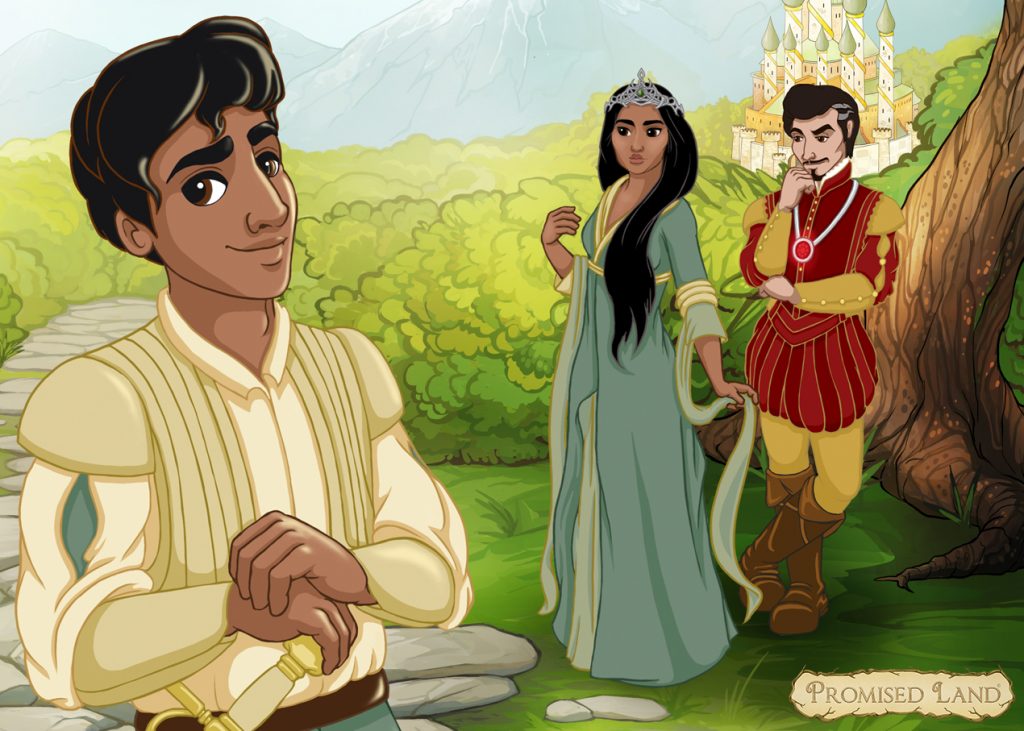
A: Luckily for us, the local bookstores selling our book have been putting it on display alongside other fairytale picture books instead of it being placed in LGBT or special interest sections. It was great to see they understood the point – we’re just another fairytale like the rest that happens to feature a love story between two male characters. People are already surprised to find that there’s a lot more story going on here than the gay relationship.
You reached stretch goals of both $25k and $35k on Kickstarter. Were you surprised it drummed up such huge interest from the gay community? Was all the reaction positive?
A: It was a huge surprise to be sure and it only really happened during the last few days of the campaign. There was a big stretch in the middle where it was looking as if we might not have made it at all. Knowing we had the community behind us really helped us push for the book as hard as we could. We want the book to be as meaningful to others as it is to us.
C: With regard to the reaction not always being positive, there are always going to be people making illogical or hateful comments. I rolled up my sleeves and dove into the comments sections a lot. I basically spent a year prior to our campaign observing J.K. Rowling’s epic troll-fighting skills and every time someone said something hateful about our campaign, I just fought back with logic. You just have to laugh and shake it off at a certain point, their reaction is only further proving the need for this book and others representing our community in storytelling.
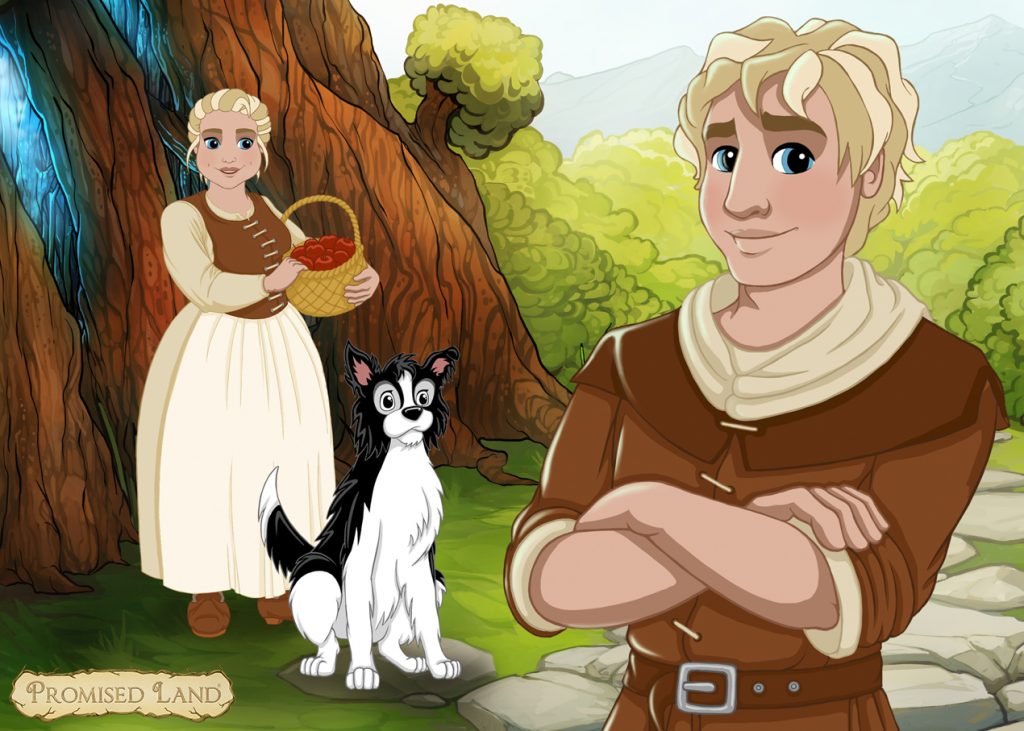
What would you say to people who are considering purchasing this book for their child?
A: If this book can help stop even one child from taking their own life then we’ve done our job. As a gay man, I know how much I needed this growing up. It would have saved a lot of pain and internal battles about whether my thoughts were “right” or “normal”. Hopefully this book can educate all children to be more accepting of one another and hopefully help reduce bullying of LGBTQ people.
Do you think schools will have a problem stocking books like this?
C: I think if young people understood sexuality and gender identity at an early age it would save lives. You don’t need to teach them sex education until they’re older, but an awareness that not everyone is heterosexual might be nice. I’m sure that would have made school less of a nightmare for us. In California, I think it’s actually now law that children have to be taught about sexuality, so I could see our book really being used well in that scenario.
With the positive reception of this, in terms of backers and reviews, are you envisioning a sequel or perhaps another book?
C: On the opening page of our book is an LGBT+ inclusive map of the kingdom, of which this story only covers a small part. There’s a whole kingdom to explore! I also think a long-form version of the story might work well for stage and screen adaptations, but that’s a conversation for another time.
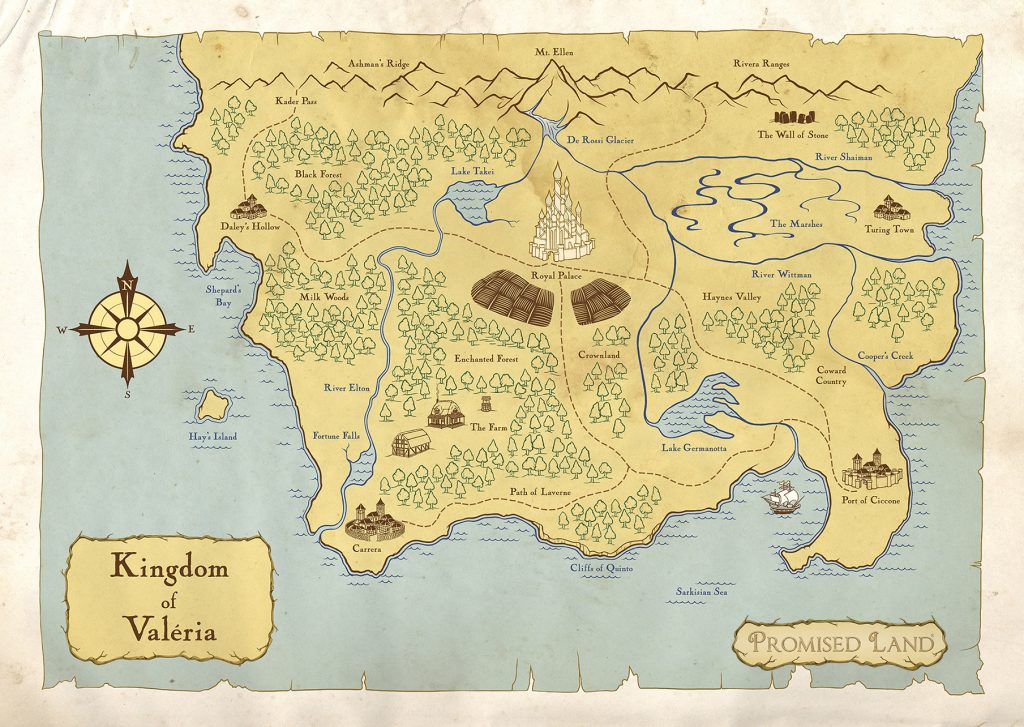
You spoke about how you wanted a book like this when you were eight years-old. What effect do you think a book like this would have had on growing up – and your adjustment as an adult gay man?
C: When I was growing up, I saw no gay role models I identified with. I was bullied all through high school. People were using homophobic slurs and the message seemed to be that being gay was was wrong. I’m lucky my parents were supportive, it wasn’t a very grand coming out, I just walked into my dad’s room and said: “So, um…I think I might be kinda gay.” He nodded and told me, “Well if you are, you are…we love you either way.”
A: I have some vivid memories of breaking down in tears in front of my mum after other children had bullied me and called me gay. At the time I was probably seven or eight and had no idea that I even was gay. It continued all the way through college and even when I started to realise I was, I suppressed my feelings. I was ashamed and made to feel guilty for it.
I didn’t embrace my sexuality until I was 21 and it wasn’t really until hearing Lady Gaga’s ‘Born This Way’ that I felt as if I could do that. I came out shortly after that and my family and friends have been hugely supportive. Looking back on it I regret not being able to express myself during some of those very important teenage years of discovery. I wish I’d had the courage to stand up then.
Promised Land is available on Amazon and iBooks in English, Spanish, Spanish for Latin America and Brazilian Portuguese. Find out more at promisedlandstore.com
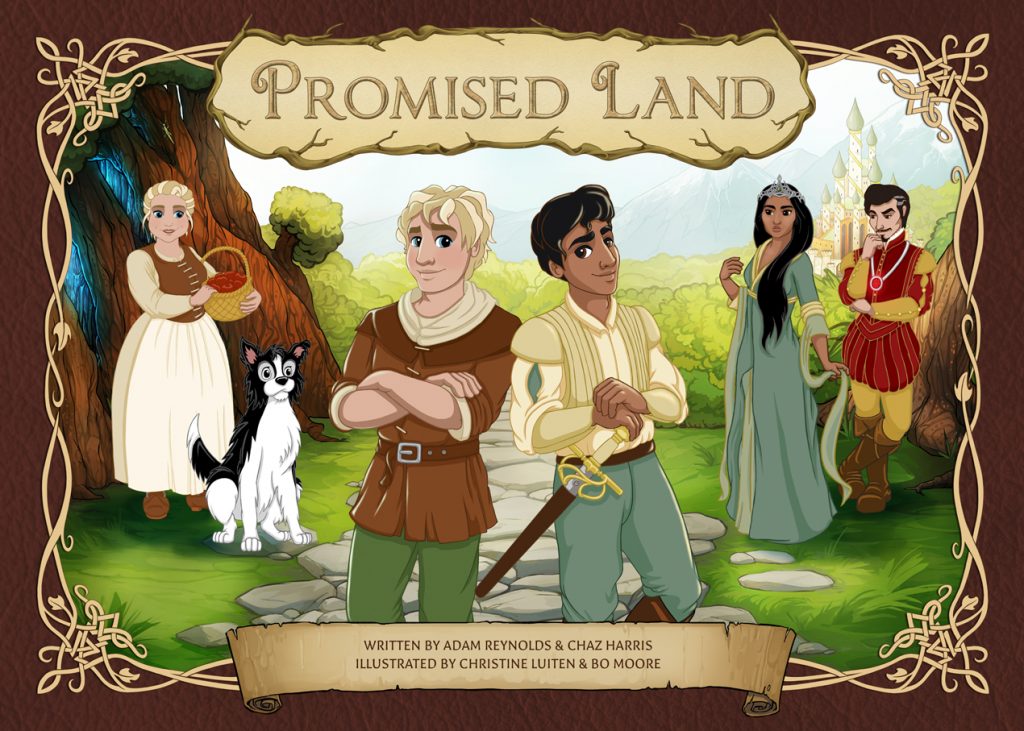
Interview by Will Shillibier
More stories:
Colton Haynes shares cute-as-hell bedroom snap with new boyfriend
Inspiring story of forbidden love discovered in Word War Two letters between two men
